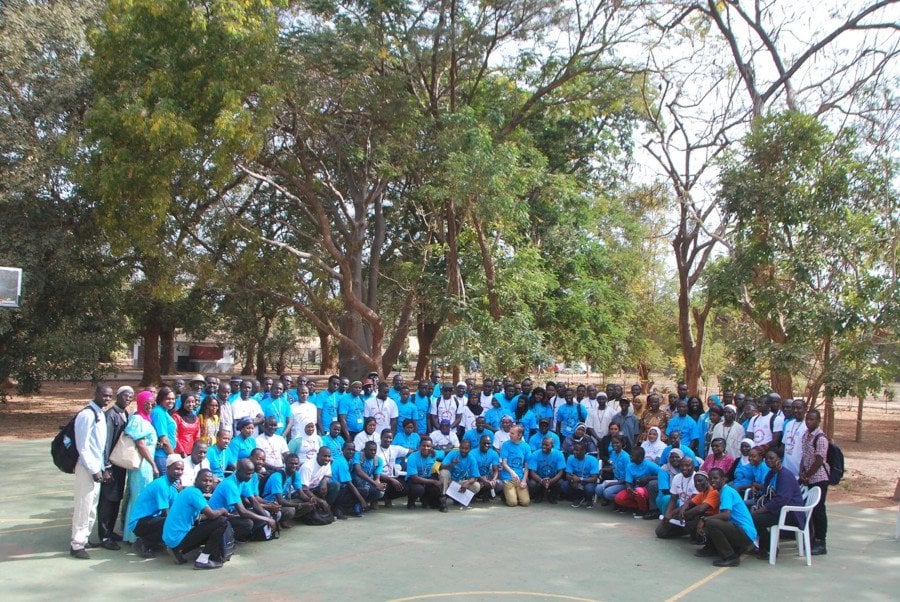
Pneumosil Vaccine Is Safe For Use as Part of Routine EPI Vaccines
Researchers at the Medical Research Council Unit The Gambia at the London School of Hygiene & Tropical Medicine have determined the immunogenicity and safety of a novel ten-valent pneumococcal conjugate vaccine (Pneumosil™) through a phase 3, randomised, double-blind, non-inferiority trial. The vaccine is manufactured by the Serum Institute of India Pvt Ltd.
The results of the trial, published in The Lancet, show that the vaccine is safe and can be co-administered with routine EPI vaccines. The data generated in this trial have supported the licensure and pre-qualification of Pneumosil, making the vaccine available for introduction into national immunisation programmes.
Pneumonia is the leading cause of under-5 mortality beyond the neonatal period around the world. In 2015, an estimated 900,000 under-5 deaths were caused by pneumonia. Streptococcus pneumoniae is the most common cause of pneumonia-associated morbidity and mortality. More than 300,000 children die from pneumococcal pneumonia, meningitis, and other invasive pneumococcal diseases (IPDs) each year.
Pneumococcal conjugate vaccines (PCVs) are highly effective at preventing serotype-specific pneumococcal disease, and their introduction has led to substantial reductions in morbidity and mortality associated with pneumococcal infection - including in The Gambia where this trial was conducted.
For this trial, which began in June 2017, 2,250 healthy, PCV-naive infants aged between 6–8 weeks were recruited from Fajikunda Health Centre, Brikama Health Centre, and Bundung Maternal and Child Health Hospital in the peri-urban West Coast Region of The Gambia.
The study was designed to establish the equivalence of the immune responses generated by three lots of Pneumosil, and to show non-inferiority of the immune response induced by Pneumosil compared with the immune response induced by the licensed pneumococcal polysaccharide protein D-conjugate vaccine (PHiD-CV; Synflorix). The study also looked at the non-inferiority of the immune responses generated by routine EPI vaccines when co-administered with Pneumosil, compared with PHiD-CV as part of the primary series. Results showed that the immunogenicity of Pneumosil was non-inferior to that of PHiD-CV, for which efficacy and effectiveness data against pneumococcal disease are available.
Dr Ed Clarke, Principal Investigator of the trial said, “This is an important milestone in global efforts to reduce preventable deaths for pneumococcal diseases. Based on the data the study generated, we expect Pneumosil to offer comparable protection to the existing pneumococcal conjugate vaccines. In addition, the vaccine is being made available at considerably reduced cost. It is a testament to the sustained hard work and commitment of the team that the vaccine is now licensed and prequalified by the WHO. Thus, it will be available to GAVI-supported countries as well as to those countries graduating from or ineligible for such support for whom the cost of PCV is particularly prohibitive. We expect that Pneumosil will have an important impact on pneumococcal disease prevention globally”.
Professor Beate Kampmann, Theme Leader of the Vaccines & Immunity theme states: “One of the stated aims for our Vaccine Theme and the MRC Unit The Gambia at LSHTM is to bring not only safe and effective but also affordable vaccines to the EPI programs in The Gambia, West African region and beyond. Based on our results, WHO pre-qualification has already been achieved, and this vaccine can now rapidly be incorporated into vaccination schedules in many countries. It will no doubt save many lives. I thank Dr Clarke and the local team for the diligent execution of this important trial”.
The study was funded by the Bill & Melinda Gates Foundation through a grant to PATH
If you enjoyed this article and would like to build a career in global health, we offer a range of MSc programmes covering health and data, infectious and tropical diseases, population health, and public health and policy.
Available on campus or online, including flexible study that works around your work and home life, be part of a global community at the UK's no.1 public health university.
